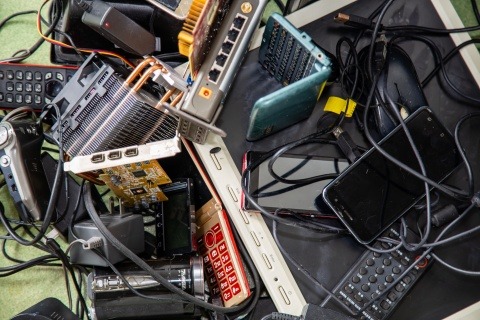The UK is currently the second largest contributor of e-waste globally, producing 23.9kg per capita. The biggest contributor is Norway, responsible for 26kg of e-waste per capita annually. If the upward trend continues, the UK is projected to overtake Norway and become the world’s largest contributor to e-waste by 2024.
Conversely, Norway has been actively improving its e-waste management through its ‘take-back’ scheme, which encourages businesses to take responsibility for the issue. Switzerland, the third largest contributor, has a similar scheme in place. These schemes require firms producing or importing electronic waste to help finance the e-waste and recycling industry.
Norway has five approved take-back companies and over 5000 member producers/importers, resulting in a recycling rate of 43.9% in 2018. In comparison, the UK’s recycling rate for e-waste was just 31.2% in 2021. The UK’s legislation requires producers of more than five tonnes of e-waste to join a producer compliance scheme, with 28 such companies currently in existence.
Businesses in the UK are mandated to take back waste regardless of the product’s purchase method or brand. They must offer to take back old electrical items when a customer buys a new one, and this service must be free to the customer, with only transport costs needing to be covered if items are collected from their home. Customers are given 28 days to return electronic items.
Different rules apply for ‘very small WEEE’, and companies are obligated to take back such items in certain circumstances. Records of collected and disposed e-waste must be kept by all producers, including the total number of items collected and disposed of via a producer compliance scheme. It is estimated that a significant amount of e-waste is neglected within people’s homes, with potential environmental impacts.
The UK government has committed to improving the WEEE waste management system, and a consultation is expected to outline these improvements, including enhancing take-back obligations and creating producer-funded household collection services for e-waste. The consultation will also seek evidence on areas of policy that require improvements, such as increasing business-to-business WEEE collection and introducing new metrics to measure the success of incoming WEEE regulations.
